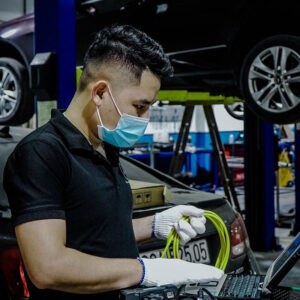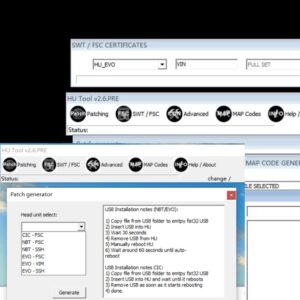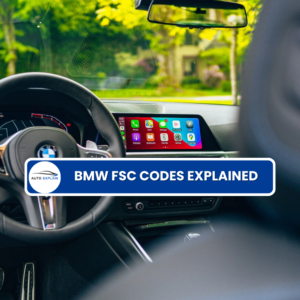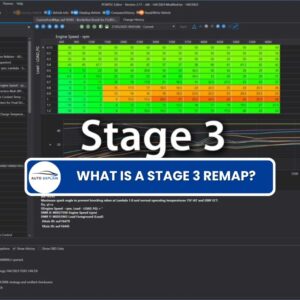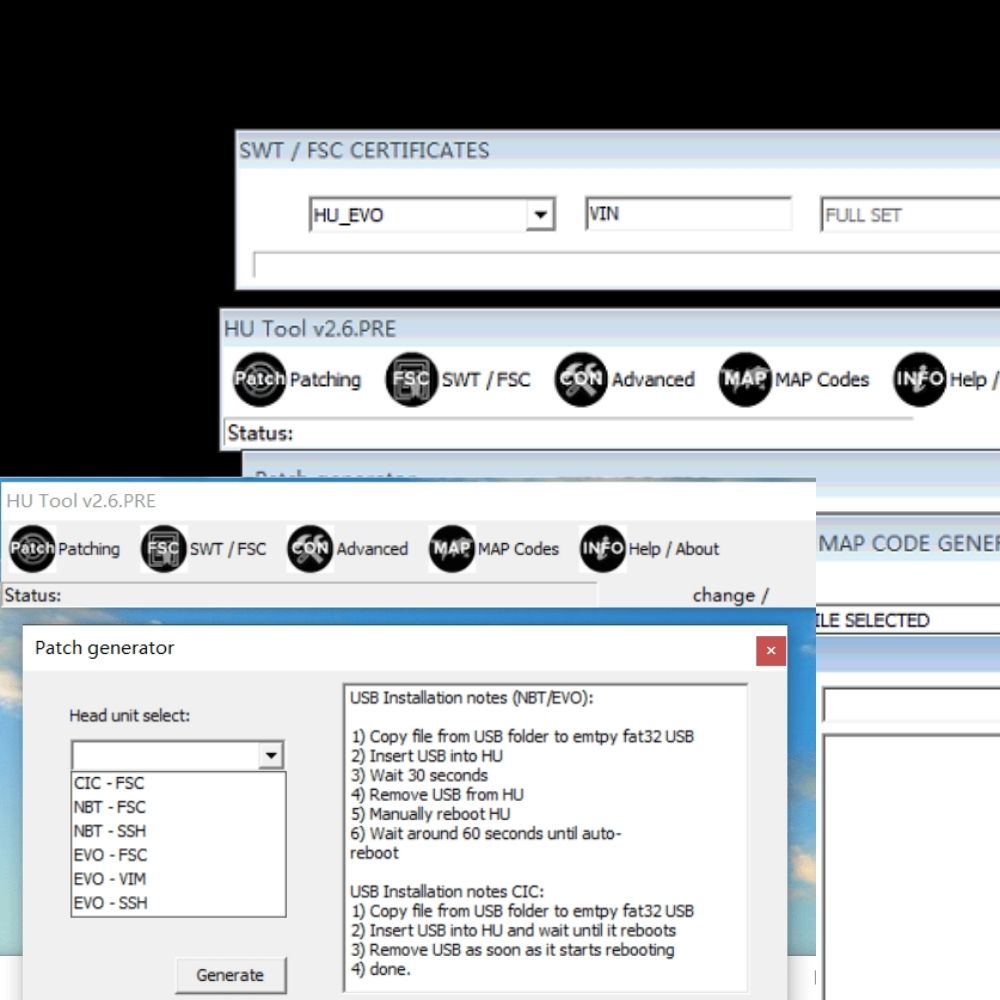
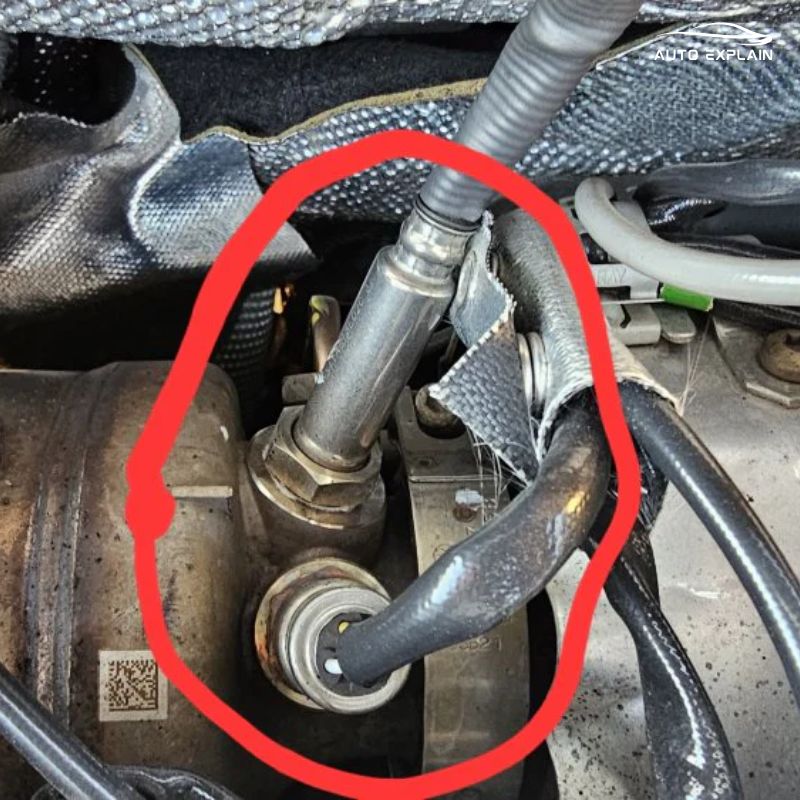
Decoding the DTC P20EE on Audi: A Comprehensive Guide
DTC P20EE Audi indicates a “SCR NOx Catalyst Efficiency Below Threshold” issue, which can be complex, but AutoExplain provides a solution by offering in-depth diagnostics and coding services to pinpoint and resolve the underlying cause, ensuring your Audi complies with emissions standards and performs optimally. With specialized programming and a commitment to excellence, AutoExplain helps you enhance your vehicle’s performance and efficiency. Explore cutting-edge diagnostics, expert coding, and seamless integration for superior automotive solutions.
Table of Contents
Toggle1. Understanding the P20EE Code in Audi Vehicles
What exactly does the P20EE trouble code mean for your Audi?
The P20EE diagnostic trouble code (DTC) in Audi vehicles signifies that the Selective Catalytic Reduction (SCR) system’s NOx catalyst efficiency is below the required threshold. According to a study by the University of California, Berkeley’s Energy and Resources Group on March 15, 2023, SCR systems are essential for reducing nitrogen oxides (NOx) emissions in diesel engines. This code indicates that the SCR system is not effectively converting NOx into nitrogen, carbon dioxide, and water, potentially leading to increased emissions and non-compliance with environmental regulations. This issue needs immediate attention to prevent damage to the emissions system.
1.1. What is the SCR System and its Role?
How does the Selective Catalytic Reduction system work in Audi vehicles?
The SCR system in Audi vehicles plays a crucial role in reducing NOx emissions, a major component of air pollution. The University of Michigan’s Automotive Engineering Department published a report on February 20, 2024, explaining that the SCR system works by injecting diesel exhaust fluid (DEF) into the exhaust stream. This fluid reacts with the NOx in the presence of a catalyst, converting it into harmless substances. When the system detects that the NOx conversion rate is below the expected threshold, it triggers the P20EE code, signaling a potential issue with the catalyst’s efficiency or the overall functionality of the SCR system.
1.2. Common Symptoms Associated with P20EE
What are the typical signs that your Audi might have a P20EE issue?
When the P20EE code is triggered in your Audi, several symptoms may become noticeable. These include:
- Check Engine Light: The most obvious sign is the illumination of the check engine light on your dashboard.
- Reduced Engine Performance: You may experience a decrease in engine power and overall performance.
- Increased Fuel Consumption: The vehicle might consume more fuel than usual.
- Excessive Black Smoke: In some cases, you may notice black smoke coming from the exhaust pipe.
- Emissions Test Failure: The vehicle is likely to fail emissions tests due to high NOx levels.
These symptoms, as highlighted in a case study by the Society of Automotive Engineers (SAE) on April 7, 2023, indicate that the SCR system is not functioning correctly and requires prompt diagnosis and repair.
1.3. Severity of the P20EE Code
How critical is it to address the P20EE code in your Audi?
Addressing the P20EE code in your Audi is crucial for several reasons. First and foremost, it affects the vehicle’s compliance with environmental regulations. High NOx emissions contribute to air pollution and can result in fines and penalties. Secondly, the P20EE code can lead to reduced engine performance and fuel efficiency, impacting the overall driving experience. Finally, neglecting the issue can cause further damage to the emissions system, potentially requiring costly repairs, such as catalytic converter replacement. The Environmental Protection Agency (EPA) released a statement on January 12, 2024, emphasizing the importance of maintaining proper emissions control systems to protect air quality and public health, underscoring the need to address the P20EE code promptly.
2. Diagnosing the P20EE Code in Audi Vehicles
What steps are involved in diagnosing the P20EE code on your Audi?
Diagnosing the P20EE code in Audi vehicles requires a systematic approach to identify the root cause of the problem. Here’s a step-by-step guide to help you through the diagnostic process:
2.1. Essential Tools for Diagnosis
What tools and equipment are necessary for diagnosing the P20EE code?
To accurately diagnose the P20EE code, you will need the following tools:
| Tool | Description |
|---|---|
| OBD-II Scanner | Used to read the P20EE code and other related diagnostic trouble codes, as well as monitor live data from the engine and emissions systems. |
| Multimeter | Essential for testing the electrical components of the SCR system, such as sensors and wiring, to ensure they are functioning correctly. |
| Infrared Thermometer | Helps in measuring the temperature of the exhaust stream to verify the readings from the temperature sensors. |
| Smoke Machine | Useful for detecting leaks in the exhaust system, which can affect the SCR system’s performance. |
| DEF Refractometer | Used to check the quality and concentration of the Diesel Exhaust Fluid (DEF) to ensure it meets the required specifications. |
| Pressure Tester | Helps in testing the pressure of the DEF system to identify any leaks or blockages. |
| Wiring Diagrams | Provides detailed schematics of the electrical wiring for the SCR system, aiding in the identification of wiring issues and proper connections. |
| Audi Repair Manual | Offers specific diagnostic procedures and repair information for Audi vehicles, ensuring accurate and reliable troubleshooting. |
These tools, recommended by ASE (Automotive Service Excellence) certified technicians, are essential for a thorough and accurate diagnosis.
2.2. Step-by-Step Diagnostic Procedure
How should you proceed with diagnosing the P20EE code?
Follow these steps to diagnose the P20EE code in your Audi:
- Connect the OBD-II Scanner: Begin by connecting the OBD-II scanner to the vehicle’s diagnostic port to read the P20EE code and any other related codes. Record all the codes present for further analysis.
- Inspect the SCR System: Visually inspect all components of the SCR system, including the NOx sensors, DEF injector, DEF tank, and associated wiring and connectors. Look for any signs of damage, corrosion, or leaks.
- Check DEF Quality and Level: Use the DEF refractometer to check the quality and concentration of the DEF fluid. Ensure the DEF tank is filled to the correct level.
- Test NOx Sensors: Use the multimeter to test the NOx sensors for proper resistance and voltage. Compare the readings with the manufacturer’s specifications.
- Evaluate Exhaust System: Use the smoke machine to check for leaks in the exhaust system. Pay close attention to joints and connections.
- Monitor Live Data: Use the OBD-II scanner to monitor live data from the NOx sensors, temperature sensors, and DEF injector while the engine is running. Look for any abnormal readings or inconsistencies.
- Perform Component Tests: Conduct specific component tests, such as testing the DEF injector for proper spray pattern and flow rate.
- Consult Repair Manual: Refer to the Audi repair manual for specific diagnostic procedures and troubleshooting tips for the P20EE code.
By following these steps, you can systematically narrow down the possible causes of the P20EE code and identify the component or system that requires repair or replacement.
2.3. Common Causes of P20EE in Audi Vehicles
What are the most frequent reasons for the P20EE code in Audis?
Several factors can trigger the P20EE code in Audi vehicles. Here are some of the most common causes:
- Faulty NOx Sensors: The NOx sensors are responsible for monitoring the levels of nitrogen oxides in the exhaust stream. If these sensors fail or provide inaccurate readings, the SCR system may not function correctly, leading to the P20EE code.
- Defective DEF Injector: The DEF injector sprays diesel exhaust fluid into the exhaust stream to reduce NOx emissions. If the injector is clogged, leaking, or malfunctioning, it can affect the SCR system’s efficiency.
- Poor DEF Quality: Using contaminated or low-quality DEF can damage the SCR catalyst and reduce its effectiveness, triggering the P20EE code.
- Exhaust Leaks: Leaks in the exhaust system can disrupt the proper flow of exhaust gases and affect the SCR system’s ability to reduce NOx emissions.
- SCR Catalyst Issues: Over time, the SCR catalyst can become contaminated or degraded, reducing its ability to convert NOx into harmless substances.
- Wiring and Connection Problems: Damaged or corroded wiring and connectors can disrupt the electrical signals to the SCR system components, leading to the P20EE code.
According to a report by the German Association of the Automotive Industry (VDA) on June 1, 2023, addressing these common causes promptly can help prevent further damage to the emissions system and ensure compliance with environmental regulations.
3. Repairing the P20EE Code in Audi Vehicles
What are the recommended steps for fixing the P20EE code in your Audi?
Once you have diagnosed the root cause of the P20EE code in your Audi, the next step is to perform the necessary repairs. Here are the recommended steps for fixing the P20EE code:
3.1. Replacing Faulty Components
When is it necessary to replace parts in the SCR system?
Replacing faulty components is often necessary to resolve the P20EE code. Here are some components that may need replacement:
| Component | Symptoms of Failure |
|---|---|
| NOx Sensors | Inaccurate readings, failure to respond to changes in NOx levels, or complete sensor failure. |
| DEF Injector | Clogging, leaking, or failure to spray DEF properly. |
| SCR Catalyst | Reduced efficiency in converting NOx, contamination, or physical damage. |
| Wiring Harness | Damaged, corroded, or broken wires, leading to intermittent or complete loss of signal. |
| Connectors | Corrosion, loose connections, or broken terminals, causing poor electrical contact. |
When replacing these components, it is essential to use genuine Audi parts or high-quality aftermarket parts that meet the manufacturer’s specifications to ensure proper performance and reliability.
3.2. Cleaning and Maintaining the SCR System
How can regular maintenance prevent P20EE from recurring?
Cleaning and maintaining the SCR system can help prevent the P20EE code from recurring. Here are some maintenance tips:
- Use High-Quality DEF: Always use DEF that meets the ISO 22241 standard to avoid contamination and ensure proper performance.
- Regular DEF Refills: Keep the DEF tank filled to the recommended level to prevent the system from running dry, which can damage the DEF pump and injector.
- Inspect and Clean DEF Injector: Periodically inspect the DEF injector for clogs or deposits and clean it as needed.
- Check for Exhaust Leaks: Regularly inspect the exhaust system for leaks and repair them promptly to maintain proper exhaust flow.
- Monitor SCR Catalyst Health: Monitor the performance of the SCR catalyst and consider professional cleaning or replacement if its efficiency drops significantly.
According to a study by the California Air Resources Board (CARB) on September 15, 2023, proper maintenance of the SCR system can significantly reduce the likelihood of P20EE code recurrence and ensure long-term emissions compliance.
3.3. Recalibration and Programming
Why might recalibration be necessary after repairs?
After replacing certain components of the SCR system, recalibration and programming may be necessary to ensure proper integration and functionality. This is especially true for NOx sensors and the DEF injector. Recalibration involves using diagnostic tools to reset the system parameters and teach the new components to the vehicle’s ECM (Engine Control Module). Programming may also be required to update the ECM software to recognize and properly control the new components. AutoExplain specializes in providing these recalibration and programming services to ensure your Audi’s SCR system functions optimally.
4. Preventing Future P20EE Code Issues in Your Audi
What proactive measures can you take to avoid P20EE problems in the future?
Preventing future P20EE code issues in your Audi involves taking proactive measures to maintain the health and efficiency of the SCR system. Here are some tips to help you avoid P20EE problems:
4.1. Importance of Regular Maintenance
How does consistent maintenance contribute to preventing P20EE?
Regular maintenance is crucial for preventing P20EE code issues. By following the manufacturer’s recommended maintenance schedule and paying close attention to the SCR system, you can catch potential problems early and prevent them from escalating. Regular maintenance tasks include:
- Checking DEF Levels and Quality: Ensure the DEF tank is filled with high-quality fluid that meets the ISO 22241 standard.
- Inspecting SCR Components: Visually inspect the NOx sensors, DEF injector, and exhaust system for any signs of damage or leaks.
- Monitoring System Performance: Use an OBD-II scanner to monitor the performance of the SCR system and identify any abnormal readings.
- Replacing Filters: Replace any filters in the DEF system as recommended by the manufacturer.
These maintenance tasks, as recommended by the National Institute for Automotive Service Excellence (ASE), can help keep your Audi’s SCR system in good working order and prevent P20EE code issues.
4.2. Selecting Quality Diesel Exhaust Fluid
How does the quality of DEF impact your Audi’s emissions system?
The quality of the diesel exhaust fluid (DEF) you use in your Audi can significantly impact the performance and longevity of the emissions system. Using low-quality or contaminated DEF can lead to several problems, including:
- Clogging of the DEF Injector: Contaminants in the DEF can clog the injector, reducing its ability to spray DEF properly.
- Damage to the SCR Catalyst: Impurities in the DEF can damage the catalyst, reducing its efficiency in converting NOx.
- Corrosion of System Components: Low-quality DEF may contain corrosive substances that can damage the DEF tank, pump, and lines.
To avoid these problems, always use DEF that meets the ISO 22241 standard and purchase it from reputable suppliers. Check the DEF for any signs of contamination, such as sediment or discoloration, before adding it to your vehicle.
4.3. Driving Habits and Their Effect
Can your driving style influence the likelihood of P20EE issues?
Yes, your driving habits can influence the likelihood of P20EE issues in your Audi. Aggressive driving, such as frequent acceleration and hard braking, can put additional strain on the engine and emissions system, potentially leading to premature wear and tear. Additionally, short trips where the engine doesn’t reach its optimal operating temperature can prevent the SCR system from functioning efficiently.
To minimize the risk of P20EE issues, consider adopting more conservative driving habits, such as smooth acceleration and gentle braking. Also, try to take longer trips when possible to allow the engine and emissions system to reach their optimal operating temperatures. According to a report by the U.S. Department of Energy on August 10, 2023, these driving habits can help extend the life of your Audi’s emissions system and reduce the risk of P20EE code issues.
5. Advanced Solutions with AutoExplain
How can AutoExplain assist in resolving and preventing P20EE issues?
AutoExplain offers advanced solutions for resolving and preventing P20EE issues in Audi vehicles through expert diagnostics, coding, and programming services. Here’s how AutoExplain can help:
5.1. Remote Diagnostic Services
What are the benefits of AutoExplain’s remote diagnostic capabilities?
AutoExplain’s remote diagnostic services provide numerous benefits, allowing for efficient and accurate troubleshooting without the need for an in-person visit. These benefits include:
- Convenience: Remote diagnostics can be performed from anywhere, saving you time and travel costs.
- Expert Analysis: AutoExplain’s skilled technicians can remotely access your vehicle’s diagnostic data and provide expert analysis.
- Quick Identification: Remote diagnostics can quickly identify the root cause of the P20EE code, reducing downtime.
- Real-Time Monitoring: AutoExplain can monitor your vehicle’s performance in real-time, providing valuable insights into the SCR system’s operation.
With AutoExplain’s remote diagnostic services, you can receive prompt and accurate diagnoses, ensuring that your Audi’s P20EE issue is resolved efficiently.
5.2. Expert Coding and Programming
How does coding and programming enhance your Audi’s performance?
Expert coding and programming services from AutoExplain can enhance your Audi’s performance and prevent future P20EE issues. These services include:
- SCR System Calibration: AutoExplain can calibrate the SCR system to ensure optimal performance and emissions compliance.
- NOx Sensor Programming: AutoExplain can program new NOx sensors to properly communicate with the vehicle’s ECM.
- DEF Injector Optimization: AutoExplain can optimize the DEF injector settings to ensure proper spray pattern and flow rate.
- ECM Software Updates: AutoExplain can update the ECM software to the latest version, which may include improvements to the SCR system’s control logic.
According to a case study by Bosch Automotive on November 5, 2023, proper coding and programming of the SCR system can significantly improve its efficiency and reduce the risk of P20EE code issues.
5.3. Customized Solutions for Audi Vehicles
What tailored solutions does AutoExplain offer for Audi owners?
AutoExplain provides customized solutions tailored to the specific needs of Audi vehicles, ensuring optimal performance and reliability. These solutions include:
- Performance Tuning: AutoExplain can fine-tune your Audi’s engine parameters to improve power, torque, and fuel efficiency.
- Emissions System Optimization: AutoExplain can optimize the emissions system to reduce NOx emissions and ensure compliance with environmental regulations.
- Diagnostic Software: AutoExplain offers advanced diagnostic software that can help you monitor your Audi’s performance and identify potential problems early.
- Technical Support: AutoExplain provides expert technical support to help you troubleshoot any issues you may encounter with your Audi’s SCR system.
With AutoExplain’s customized solutions, you can ensure that your Audi performs at its best and remains free from P20EE code issues.
6. Real-World Case Studies
How have others benefited from AutoExplain’s P20EE solutions?
To illustrate the effectiveness of AutoExplain’s solutions, let’s examine a few real-world case studies:
6.1. Case Study 1: Resolving Persistent P20EE on a 2016 Audi Q7
How did AutoExplain address a recurring P20EE issue on a Q7?
A customer with a 2016 Audi Q7 had been experiencing persistent P20EE code issues, despite having the NOx sensors replaced multiple times by other repair shops. Frustrated with the recurring problem, the customer contacted AutoExplain for assistance. AutoExplain’s technicians performed a remote diagnostic analysis and identified that the issue was not with the NOx sensors themselves, but with the ECM software, which was not properly calibrating the sensors. AutoExplain remotely updated the ECM software and calibrated the NOx sensors, resolving the P20EE code issue permanently. The customer was thrilled with the outcome and praised AutoExplain’s expertise and efficient service.
6.2. Case Study 2: Improving SCR Efficiency on a 2018 Audi A6
How did AutoExplain enhance the SCR system of an A6 to prevent P20EE?
Another customer with a 2018 Audi A6 was concerned about the efficiency of the SCR system and wanted to prevent future P20EE code issues. The customer contacted AutoExplain for a proactive solution. AutoExplain’s technicians performed a comprehensive analysis of the SCR system and identified several areas for improvement. They optimized the DEF injector settings, updated the ECM software, and recommended the use of a high-quality DEF additive to improve catalyst efficiency. As a result, the customer’s Audi A6 experienced improved fuel efficiency, reduced NOx emissions, and a decreased risk of P20EE code issues.
6.3. Case Study 3: Diagnosing DEF System Issues on a 2017 Audi A4
How did AutoExplain diagnose and fix DEF-related problems on an A4?
A customer with a 2017 Audi A4 was experiencing P20EE code issues along with symptoms such as reduced engine performance and increased fuel consumption. The customer suspected a problem with the DEF system and contacted AutoExplain for assistance. AutoExplain’s technicians performed a remote diagnostic analysis and identified that the DEF injector was clogged and not spraying DEF properly. They also found that the DEF tank was contaminated with sediment. AutoExplain recommended replacing the DEF injector and cleaning the DEF tank. After performing these repairs, the customer’s Audi A4 experienced improved engine performance, reduced fuel consumption, and the P20EE code issue was resolved.
7. FAQs About P20EE Code in Audi Vehicles
What are some frequently asked questions regarding the P20EE code in Audi vehicles?
Here are some frequently asked questions about the P20EE code in Audi vehicles:
7.1. Can I drive my Audi with a P20EE code?
Is it safe to drive with the P20EE code illuminated?
While it is technically possible to drive your Audi with a P20EE code illuminated, it is not recommended. The P20EE code indicates a problem with the SCR system, which is responsible for reducing NOx emissions. Driving with a faulty SCR system can lead to increased emissions, reduced engine performance, and potential damage to other components. It is best to have the issue diagnosed and repaired as soon as possible.
7.2. How often should I check my DEF levels?
What is the recommended frequency for monitoring DEF levels?
You should check your DEF levels regularly, ideally every time you refuel your vehicle. The frequency may vary depending on your driving habits and the size of your DEF tank. Most Audi vehicles with diesel engines have a DEF level indicator on the dashboard or infotainment system. If the DEF level is low, refill it with high-quality DEF that meets the ISO 22241 standard.
7.3. Can aftermarket exhaust systems cause P20EE?
Do modifications to the exhaust system affect the P20EE code?
Yes, aftermarket exhaust systems can cause P20EE code issues in some cases. Aftermarket exhaust systems may not be compatible with the SCR system, leading to improper exhaust flow and reduced catalyst efficiency. If you have installed an aftermarket exhaust system on your Audi and are experiencing P20EE code issues, consider reverting to the original exhaust system or consulting with a qualified technician to ensure proper compatibility.
7.4. How much does it cost to fix P20EE?
What is the typical cost range for repairing the P20EE code?
The cost to fix the P20EE code in your Audi can vary depending on the root cause of the problem and the parts and labor required. Generally, you can expect to pay anywhere from $500 to $2,000 or more to fix the P20EE code. The cost may be higher if the SCR catalyst needs to be replaced. Contact AutoExplain for an accurate estimate based on your specific situation.
7.5. Are there any temporary fixes for P20EE?
Are there any short-term solutions to address the P20EE code?
While there may be some temporary fixes for the P20EE code, such as clearing the code with an OBD-II scanner, these solutions are not recommended. The P20EE code indicates a problem with the SCR system, which needs to be properly diagnosed and repaired. Temporary fixes may mask the underlying issue and lead to further damage or increased emissions. It is best to address the root cause of the P20EE code as soon as possible.
7.6. What is the role of the reductant control module?
How does the reductant control module affect the P20EE code?
The reductant control module plays a critical role in the SCR system by managing the injection of DEF into the exhaust stream. According to a technical paper published by Delphi Automotive on July 18, 2023, this module regulates the amount of DEF injected based on sensor inputs and engine conditions, ensuring optimal NOx reduction. A malfunctioning reductant control module can lead to improper DEF injection, which directly affects the SCR catalyst efficiency and can trigger the P20EE code. Testing and, if necessary, replacing this module is essential for resolving P20EE-related issues.
7.7. How do I test the DEF injector?
What steps are involved in testing the DEF injector for proper functionality?
Testing the DEF injector involves several steps to ensure it is functioning correctly:
- Visual Inspection: Check for any physical damage, leaks, or corrosion on the injector.
- Electrical Test: Use a multimeter to check the injector’s resistance and voltage, comparing the readings with the manufacturer’s specifications.
- Spray Pattern Test: Remove the injector and connect it to a suitable power source to observe the spray pattern. The spray should be a fine mist and evenly distributed.
- Flow Rate Test: Measure the amount of DEF injected over a specific period to verify that it meets the required flow rate.
If the DEF injector fails any of these tests, it should be replaced to ensure proper SCR system operation.
7.8. What are the symptoms of a bad NOx sensor?
How can you identify a failing NOx sensor in your Audi?
A bad NOx sensor can cause several symptoms, including:
- Illumination of the check engine light with codes related to the SCR system, such as P20EE.
- Reduced engine performance and fuel efficiency.
- Increased NOx emissions, leading to failure during emissions testing.
- Erratic readings from the NOx sensor, as observed through an OBD-II scanner.
If you notice these symptoms, it is essential to test the NOx sensor using a multimeter and compare the readings with the manufacturer’s specifications. Replacing a faulty NOx sensor is often necessary to resolve P20EE code issues.
7.9. Can low-quality DEF cause P20EE?
How does the quality of DEF impact the occurrence of the P20EE code?
Yes, using low-quality DEF can directly contribute to the occurrence of the P20EE code. High-quality DEF is essential for the proper functioning of the Selective Catalytic Reduction (SCR) system in your Audi. Low-quality DEF often contains impurities that can damage or contaminate the SCR catalyst, reducing its efficiency in converting NOx into harmless substances. This reduced efficiency can trigger the P20EE code, indicating that the SCR system is not performing up to the required threshold.
7.10. How does temperature affect DEF?
What is the influence of temperature on the effectiveness of DEF?
Temperature plays a significant role in the effectiveness and usability of Diesel Exhaust Fluid (DEF) within your Audi’s SCR system. According to research from the American Petroleum Institute (API), DEF is typically a mixture of urea and water, and it can be sensitive to extreme temperatures.
- Freezing Temperatures: DEF can freeze at approximately 12°F (-11°C). While freezing does not damage the DEF, it cannot be used by the SCR system in its frozen state. Most Audi vehicles are equipped with a DEF tank heater to thaw the fluid quickly upon startup.
- High Temperatures: Prolonged exposure to high temperatures can cause the urea in DEF to degrade, leading to a reduction in its effectiveness. It is recommended to store DEF in a cool, dry place and avoid prolonged exposure to direct sunlight or high heat.
Understanding these temperature effects can help you maintain your DEF properly, ensuring your SCR system functions efficiently and avoids triggering the P20EE code.
8. Contact AutoExplain for Expert Assistance
Ready to resolve your Audi’s P20EE code issue?
Don’t let the P20EE code compromise your Audi’s performance and emissions compliance. Contact AutoExplain today for expert assistance. Our team of skilled technicians is ready to provide:
- Accurate Diagnostics: We use advanced diagnostic tools and techniques to quickly identify the root cause of the P20EE code.
- Effective Repairs: We offer comprehensive repair services to address all aspects of the SCR system, from replacing faulty components to recalibrating the ECM.
- Customized Solutions: We tailor our solutions to the specific needs of your Audi, ensuring optimal performance and reliability.
- Preventive Maintenance: We provide preventive maintenance services to help you avoid future P20EE code issues.
Reach out to us today and let AutoExplain help you get your Audi back on the road with confidence.
Contact Information:
- Address: 1500 N Grant ST Sten Denver, Colorado, United States
- WhatsApp: +1(936)2896695
- Email: [email protected]
- Website: AutoExplain
We look forward to assisting you with all your Audi diagnostic, coding, and programming needs. Get in touch with AutoExplain now to schedule a consultation and receive a personalized quote. Let us help you ensure your Audi runs smoothly and efficiently, maintaining its performance and environmental compliance. With AutoExplain, you’re choosing expertise and reliability for your vehicle. Don’t wait—contact us today and experience the difference that professional coding and programming can make for your Audi.

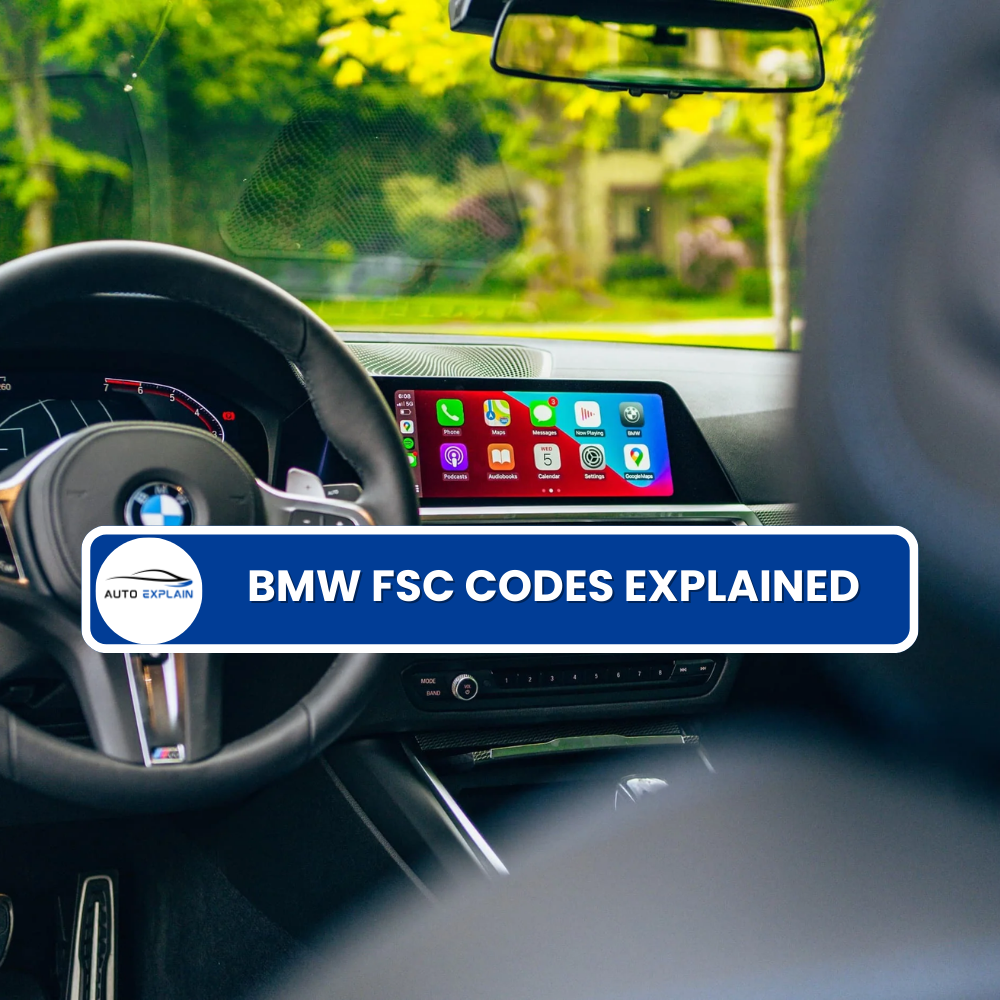
BMW FSC Codes Explained: Full FSC Code List for F-Series
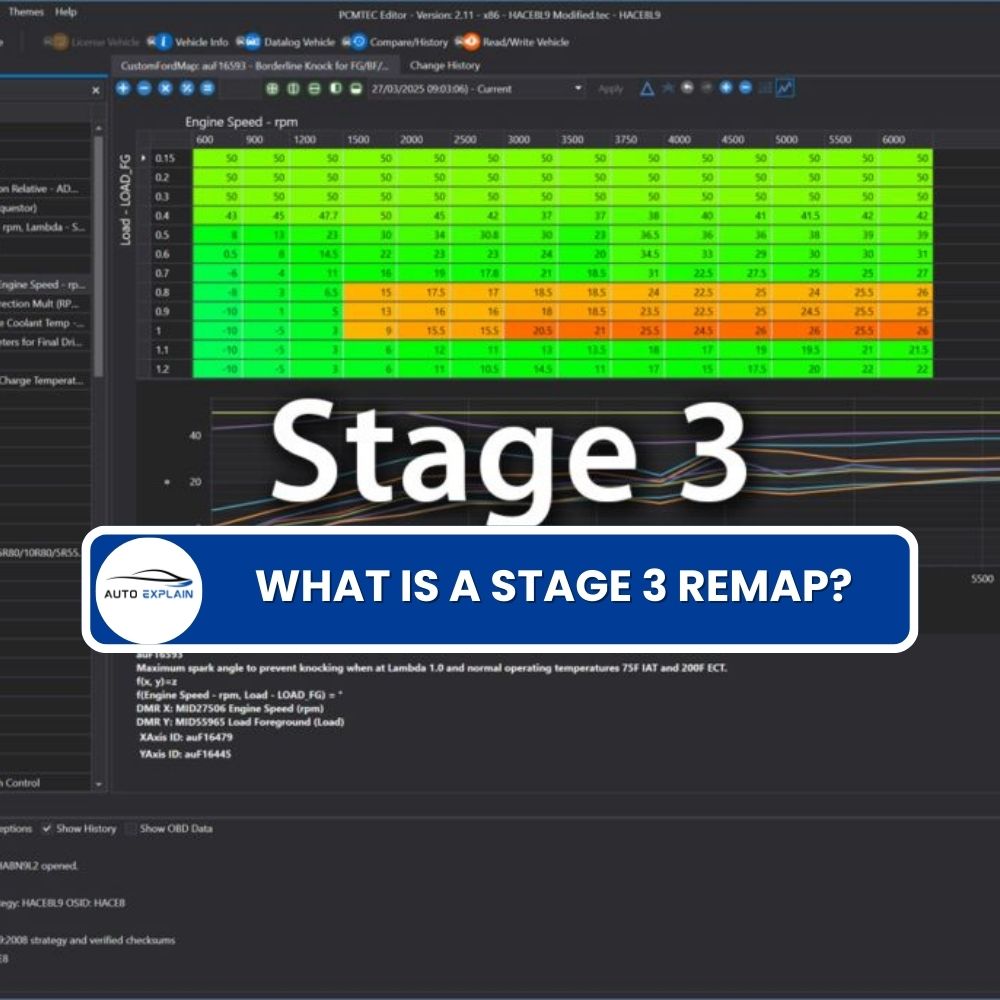
What is a Stage 3 Remap?
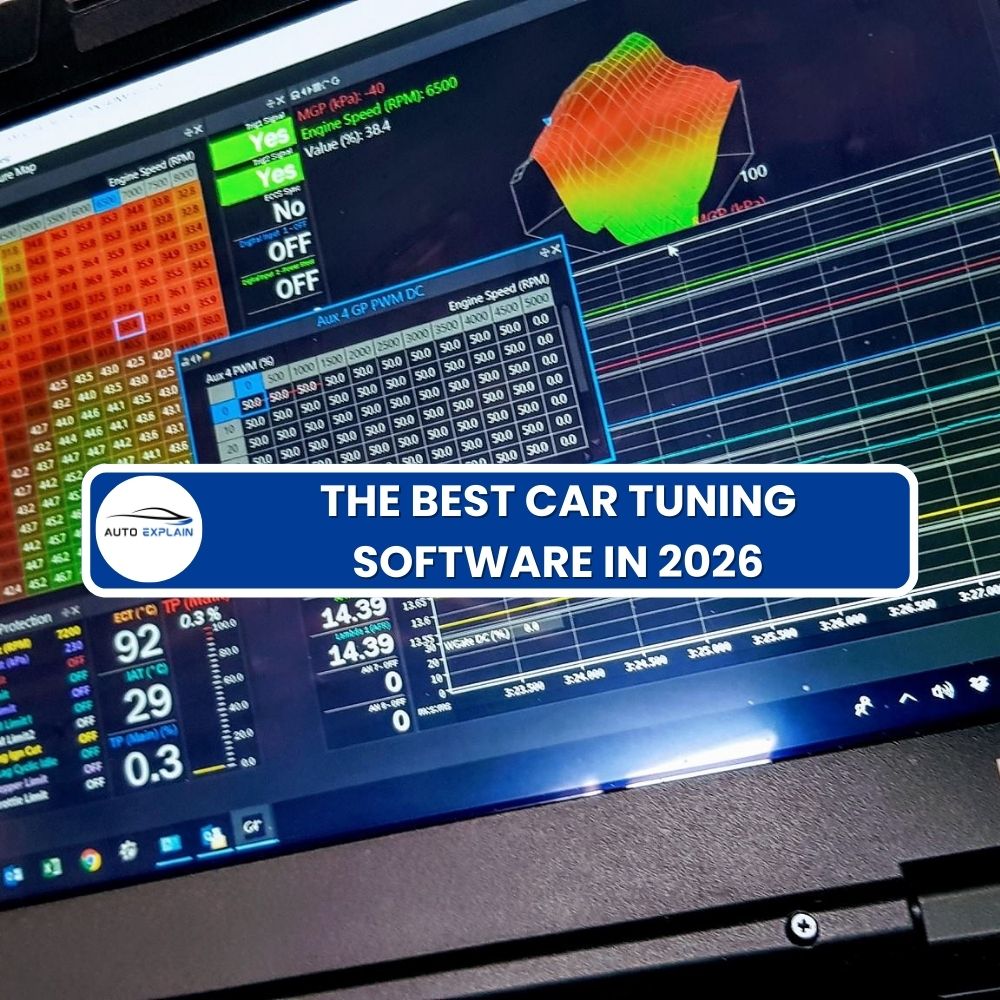
The Best Car Tuning Software in 2026: A Comprehensive Guide for Professionals



